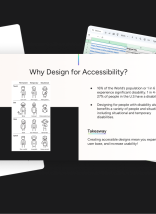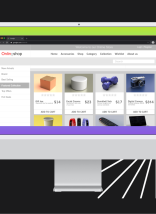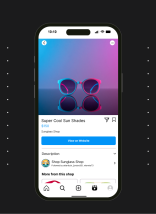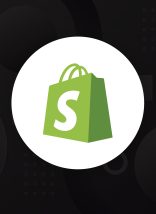You’ve started your own business. What a wild ride it’s been. You’ve faced long days, dealt with setbacks, and needed a glass of wine (or two). There have been high-flying successes and unforeseen twists. Fireworks and tears. Your journey of self-discovery has led you to this very special occasion; choosing the best eCommerce platform for your small business. You’re nervous. You can’t help it! This is the moment of decision. Like The Bachelor, you only have one rose to give and so much to consider. After perusing many options, you’ve narrowed it down to two; Shopify and Etsy.
They’re both wonderful, with winning smiles and just a hint of crazy in their eyes. As you stare pensively into your possible future together, you think of the time you’ve spent getting to know them. You ponder what you’ve learned, and what it all means. Which eCommerce platform is the right match for you?
What Shopify and Etsy each bring to the table
One on One
It’s hard to forget the first time you met Etsy. You’d heard about Etsy (who hasn’t?) but now Etsy was hearing about you. It was no longer a site other people used. Now it could be a site you relied on. Your business could have the tools and exposure needed to make that first impression a great one. Etsy comes with its own brand recognition and built-in consumer base, which makes marketing much easier. Setting up shop on Etsy is simple. Your business can be up and running in mere minutes—as long as you follow the rules.
Ah yes, the rules. Etsy has ets-pectations. You can’t just sell anything. Etsy is a marketplace specifically for handmade crafts and custom-made goods, as well as vintage items. Anything that falls outside of those parameters is a no go. Luckily, you’re selling t-shirts with cat hair shoulderpads, rather than curses (which is a service and therefore not allowed). Etsy remains a viable option.
Joining Etsy is free, but there are fees involved for sellers. Listing, transaction, and payment processing fees are affordable, especially at the onset. Unfortunately, they can eat into profits once your shop brings in more revenue. The financial relationship between you and Etsy is bound to cause tension as your business grows. Still, it’s difficult to imagine any hardships down the line because the Etsy in front of you is so quirky and fun! Maybe this could work…
Then Shopify appeared, all sparkles and charm, and you were smitten. A webstore platform with a history of dependability, Shopify believed you were strong enough to be autonomous. You would never be just another shop in a marketplace. Getting started with Shopify is easier thanks to its outstanding 24/7 customer service available to its users. The only question Shopify will ask about your merchandise is ‘Is it legal?’. This platform provides support for stores at every level of success, maintaining a strong foundation for small businesses as they evolve. You can rely on Shopify to ensure you have all kinds of tools and plugins to help your business reach the top. However, if you want to make it there, you have to be invested.
In order for you and Shopify to be a team, you’ll have to be willing to give both time and money. All users pay a subscription cost that can range from $29/month to $299/month, depending on how extensive you want to make your relationship. Larger businesses can choose Shopify Plus. Someone who just wants to stick their toe into the eCommerce waters can dabble with Shopify Lite. There are no payment fees when processing a sale, but users do have to cover credit card rates. While Etsy is very easy to manage on your own, you might feel inspired to call in experts for assistance with Shopify. Web designers and SEO/marketing consultants who know how to utilize Shopify are a solid investment. Is it one you’re ready for?
Speaking of marketing, you’ll have to do that on your own. There is no main Shopify hub where potential customers can stumble upon your store. Introducing your brand to the world is a process. It takes time, patience, and savvy creativity. Could such a stable platform be too high maintenance for what you need right now?
How Shopify and Etsy Manage a Crowd
Group Date
After learning Shopify and Etsy’s compelling origin stories, you want to know how they would get along with others, particularly your potential customers. Etsy, always the extrovert, is immensely popular. A high-ranking SEO and stellar reputation consistently precedes Etsy. You gain access to numerous future consumers. Customers would also be able to easily navigate your shop. There would be nothing new or unique to learn as they browse and make purchases. Even better, Etsy makes it simple to offer and apply discounts and promotions. Happiness for everyone!
But if you want to go where everybody knows your name, Etsy wouldn’t be the platform for that. When asked where they bought a product, customers usually default to saying ‘I got it on Etsy’. They often don’t share or remember the name of your shop. Narrowing one’s shopping focus in a marketplace with over 45 million items for sale can be daunting for a buyer who isn’t quite sure what they’re looking for yet. Also, Etsy doesn’t have eyes only for your store. The competition throughout the marketplace would be intense. Standing out in the crowd isn’t easily achieved when you’re entrenched in a preordained process. Still, it is hard to beat that natural, Etsy appeal.
Shopify, on the other hand, is the strong and silent type. Customers who would visit your store on Shopify would more likely be there for a specific reason, with a clear intent to buy your product. You would have to craft your own marketing strategy, but Shopify wanted to support you there. Apps were available that helped to elevate the shopping experience. Yotpo allowed customers to leave reviews. Loyalty Lion enabled sellers to give rewards for purchases and referrals. Wishlist gave an opportunity for shoppers to create just that. KISSmetrics was also available to help you analyze the productivity of your store as well as consumer activities and habits.
Shopify also gives your customers a wider variety of payment options. Driving customers to your store requires more work. Once they arrive, however, they will encounter an optimized UX that you could be proud of. You also know your brand would be singular, rather than falling under the banner of Shopify. Despite the potential marketing mountain, you could develop a rapport with your customers, creating consumer relationships that could only make your brand stronger. Shopify could be worth the effort.
How Shopify and Etsy Reflect Your Brand
Hometowns
When the time comes to introduce Shopify and Etsy to your business, be ready for each platform to make its own impression. Etsy will be ready to go with a format that’s accessible and straightforward. All you need to do is answer a few questions about your business and products then provide pictures of your merchandise. The process is a breeze. You might notice, though, that your shop looks exactly like everyone else’s.
Ever caring, Etsy notices this issue and gives you a present. Etsy Pattern is a new platform that allows you to make a small shop of your own. A subscription of $15/month gets you started creating a store that visually speaks to your brand. More than just pictures with descriptions, Pattern gives you room for self expression. It allows customers to know your brand’s character as well as its products. While Pattern does allow your Etsy shop inventory to sync with your new store, it remains a completely different web destination for customers. Your Pattern store is not promised the traffic seen on the marketplace. Since many clients may associate your product with Etsy rather than you, it’s not a guarantee that Etsy shop customers will seek out your store. It is nice, though, to have options that best reflect you and what you believe your brand can be.
In comparison, Shopify is all about you from the beginning. It can be a bit daunting at times, slightly obsessive even. However, since the goal of the relationship is the clear establishment of your business, Shopify never had any qualms about it. From the start, you have your own custom domain name and URL structure. It’s important to remember Shopify isn’t just a platform program to build off of. It is software for you to use, to create an eCommerce store that looks and functions exactly the way you want.
If you’re unsure about your web design skills and not ready to invest in hiring a company to assist you, worry not. There are pre-designed templates galore to choose from. Having anyone on your team who knows how to best utilize the Shopify software is a huge creative win. The top priority would be your vision and concept. Shopify also allows you to sync all your inventory in one place. This allows communication between your eCommerce branch and any brick and mortar store you may have. It also includes business done with local shops and marketplaces. Support for future success is naturally built in. Shopify works for small businesses aiming to take their goals to the next level.
Now here you are. The choice is yours. After the most dramatic thought process you’ve gone through yet, who will get the final rose? If you’re still feeling unsure about what your business goals are and want to take small steps into the world of eCommerce, Etsy could be an excellent option. If you already have a solid business plan, vision, and drive, you might be ready for Shopify and the opportunity it provides for brand engagement and growth.
Whenever you’re ready.
If you’ve given your rose to Shopify and would like to put a ring on it, Atlantic BT is here to help. We have the experience, knowledge, and creativity needed to help your eCommerce site thrive.







